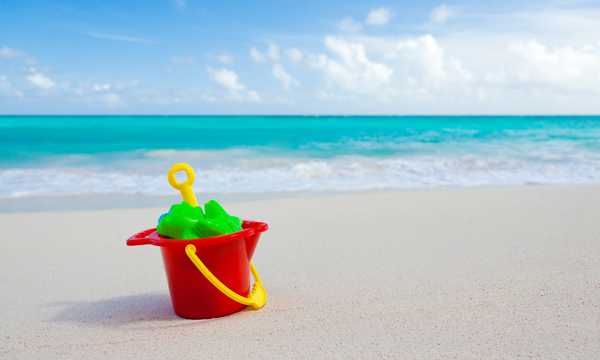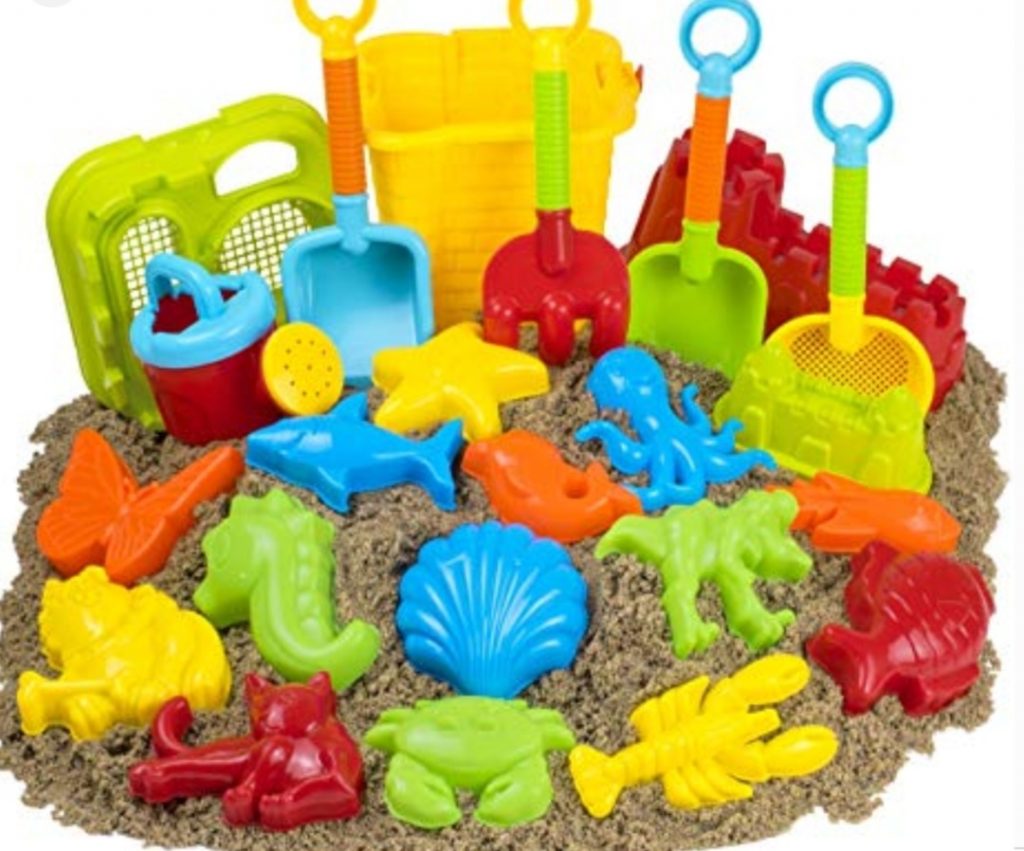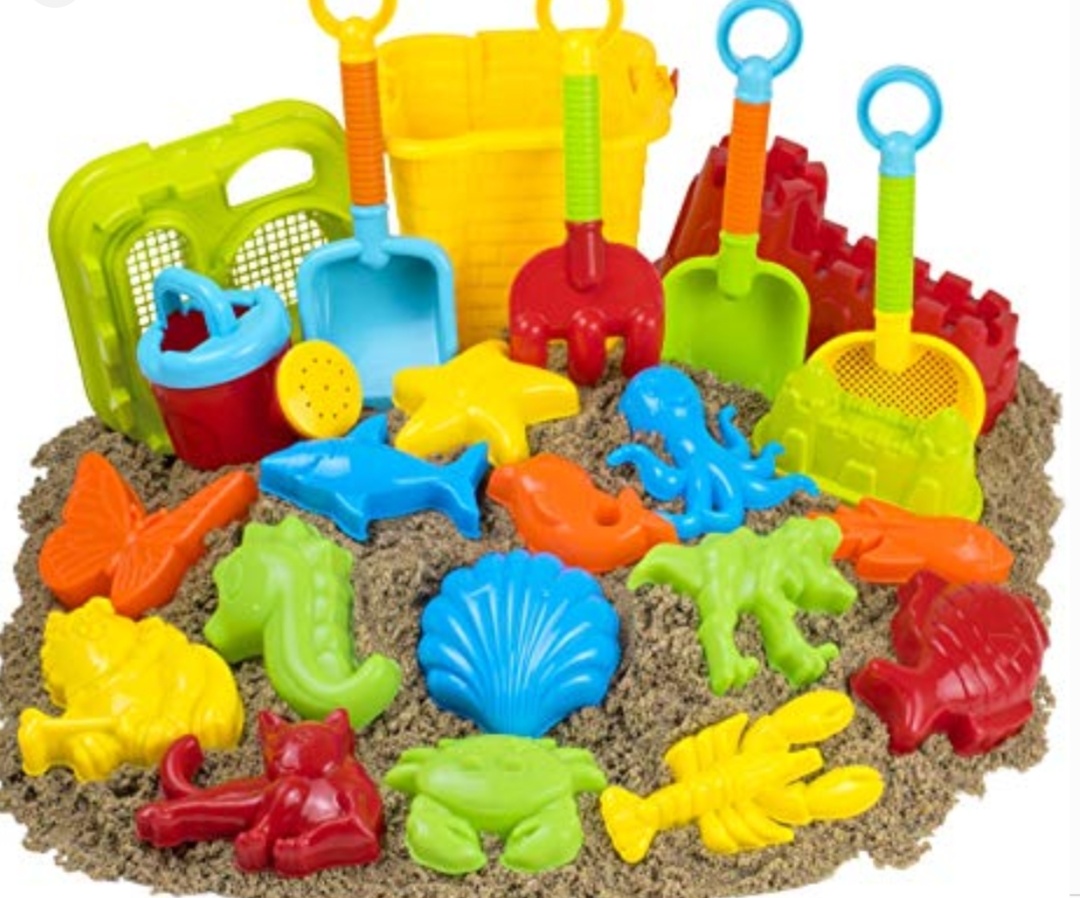Note: This is a guest post from Denaye Barahona of Simple Families.

I wrapped up a work trip to Los Angeles and found myself wandering the Santa Monica Pier. As I soaked up the warmth of the day, I found myself missing my kids. The ocean, the sun, the sand… I wanted to share it all with them.
I wanted to bottle it all up and take it home with me.
But alas, the TSA wasn’t going to endorse a jug of salt water and sand in my carry on. Eventually, I found myself standing squarely in front of a kiosk of inexpensive toys. My eye quickly went to a plastic, battery-powered, light-up unicorn headband.
The only thing lighting up brighter than that unicorn horn would be my three-year-old daughter when I put it on her head. She would love that toy.
The joy it would bring to her life would be immeasurable—for at least 18 seconds until she lost interest or it broke. Even though it would have been an extra special treat to surprise her with when I got home, it was a hard pass for me.
Where does it go?
After that 18-second-window-of-elation, the unicorn will live on. For her early life, she may live on crammed in the bottom of a toy box, then she may meet her demise accidentally dropped in a parking lot never to be seen again. But don’t be fooled, the mythical creature is nearly immortal.
Once it leaves your home it is not gone.
This unicorn will live out a long life at the local landfill with her fellow trinkets (i.e. The Birthday Party Favor Bag and the Dentist Office Treasure Chest). Those plastic trinkets will take more than 500 years to degrade.
Toys are notoriously hard to recycle. That means nearly every plastic toy evermanufactured now lives in a landfill somewhere. Take a moment to visualize that.
Who’s the boss?
Children cannot be expected to self-regulate the accumulation of stuff. Sure, we can (and should) teach them about the lifespan of a product and where it will go after it leaves our home. We can practice thoughtful decision-making practices when it comes to purchasing goods.
But just like us, they are a work in progressand will struggle to resist the urge to keep.it.all.
Ultimately, as the adults with the fully-developed brains and credit cards, we have to be the ones steering the ship. We need to set boundaries around the stuff we bring into our homes. Children learn through modeling. We must learn how to say no so that our children can see us and learn better ways themselves.
Why does this happen?
I admit it: I get an internal feeling of excitement when the UPS truck pulls into my driveway unexpectedly. “Oh, what could it be?”, I find myself excitedly wondering as I tear into the box like a wild banshee only to find the gummy vitamins I have on bi-monthly auto-shipment.
“New stuff” can act as horse blinders. Our children become laser-focused on the acquisition of new trinkets and unable to see what falls on the periphery: the real gifts. The relationships in our lives are the real gifts.
Our kids cannot see past the stuff. And yes, adults struggle with this too.
What lights them up?
The strong surge of dopamine associated with new stuff and wrapped gifts will nearly always trump the gentler oxytocin spikes enveloped in a long embrace from Grandma. The Laughter. The Cuddling. The Eye Contact. The Human Touch. If we want our children to focus on the real gifts, we must take off the horse blinders.
Occasional, thoughtful gifts are one thing, but we have to cut back on the constant onslaught of junk.
When I returned home from this trip, my daughter was running to me for a hug and kiss because she loves me and looked forward to my return. I am the gift. Our relationship is the gift. The minute I start stuffing my suitcase full of trinkets is the minute she starts running to my suitcase instead of my arms.
Call me selfish, but I’m not willing to share my affection with a plastic unicorn headband.
If we want children to value relationships over stuff, we have to be intentional about the way we bring it into their lives. The way we buy will teach. I beg you, for the good of your children and this planet, please stop buying plastic crap.
***
Denaye’s new book Simple Happy Parenting is now available. She is the voice behind Simple Families, a podcast, blog and community for parents. She has a Ph.D. in Child Development and has spent her career supporting families to more harmonious lives with young children
Most recent
14 Feb 2023
Turn Red Hearts Green this Valentine’s Day
3 Feb 2023
Sharing is caring
Next article


